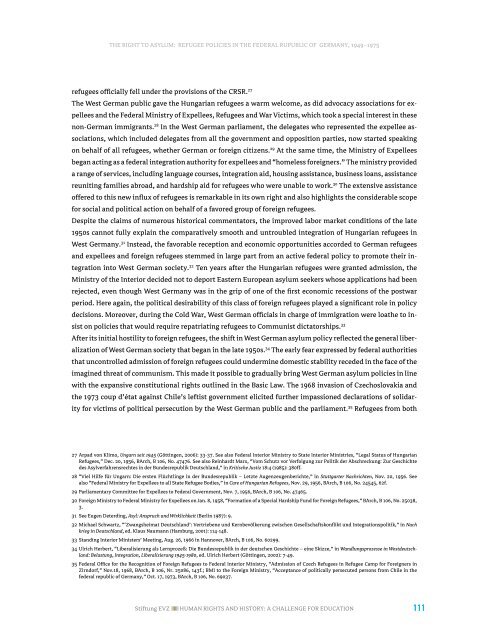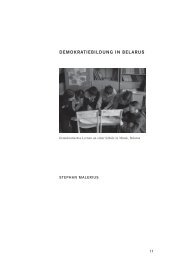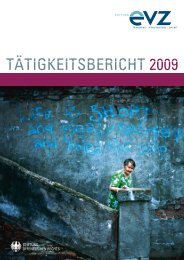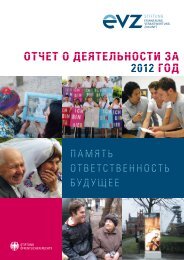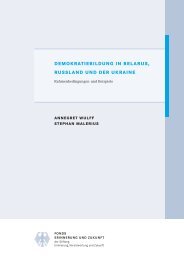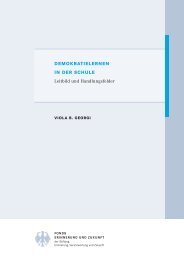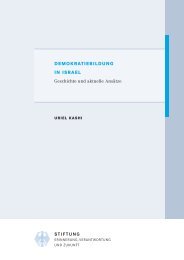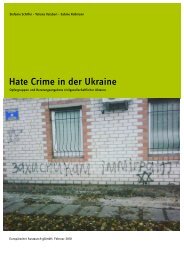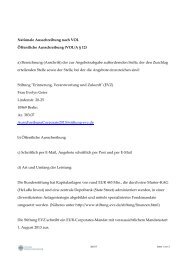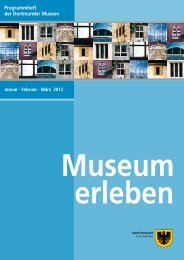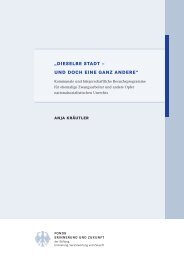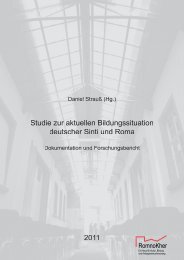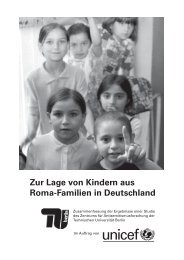chapter 2 - Stiftung "Erinnerung, Verantwortung und Zukunft"
chapter 2 - Stiftung "Erinnerung, Verantwortung und Zukunft"
chapter 2 - Stiftung "Erinnerung, Verantwortung und Zukunft"
You also want an ePaper? Increase the reach of your titles
YUMPU automatically turns print PDFs into web optimized ePapers that Google loves.
THE RIGHT TO ASYLUM: REFUGEE POLICIES IN THE FEDERAL RUPUBLIC OF GERMANY, 1949–1975<br />
refugees officially fell <strong>und</strong>er the provisions of the CRSR. 27<br />
The West German public gave the Hungarian refugees a warm welcome, as did advocacy associations for expellees<br />
and the Federal Ministry of Expellees, Refugees and War Victims, which took a special interest in these<br />
non-German immigrants. 28 In the West German parliament, the delegates who represented the expellee associations,<br />
which included delegates from all the government and opposition parties, now started speaking<br />
on behalf of all refugees, whether German or foreign citizens. 29 At the same time, the Ministry of Expellees<br />
began acting as a federal integration authority for expellees and “homeless foreigners.” The ministry provided<br />
a range of services, including language courses, integration aid, housing assistance, business loans, assistance<br />
reuniting families abroad, and hardship aid for refugees who were unable to work. 30 The extensive assistance<br />
offered to this new influx of refugees is remarkable in its own right and also highlights the considerable scope<br />
for social and political action on behalf of a favored group of foreign refugees.<br />
Despite the claims of numerous historical commentators, the improved labor market conditions of the late<br />
1950s cannot fully explain the comparatively smooth and untroubled integration of Hungarian refugees in<br />
West Germany. 31 Instead, the favorable reception and economic opportunities accorded to German refugees<br />
and expellees and foreign refugees stemmed in large part from an active federal policy to promote their integration<br />
into West German society. 32 Ten years after the Hungarian refugees were granted admission, the<br />
Ministry of the Interior decided not to deport Eastern European asylum seekers whose applications had been<br />
rejected, even though West Germany was in the grip of one of the first economic recessions of the postwar<br />
period. Here again, the political desirability of this class of foreign refugees played a significant role in policy<br />
decisions. Moreover, during the Cold War, West German officials in charge of immigration were loathe to insist<br />
on policies that would require repatriating refugees to Communist dictatorships. 33<br />
After its initial hostility to foreign refugees, the shift in West German asylum policy reflected the general liberalization<br />
of West German society that began in the late 1950s. 34 The early fear expressed by federal authorities<br />
that uncontrolled admission of foreign refugees could <strong>und</strong>ermine domestic stability receded in the face of the<br />
imagined threat of communism. This made it possible to gradually bring West German asylum policies in line<br />
with the expansive constitutional rights outlined in the Basic Law. The 1968 invasion of Czechoslovakia and<br />
the 1973 coup d’état against Chile’s leftist government elicited further impassioned declarations of solidarity<br />
for victims of political persecution by the West German public and the parliament. 35 Refugees from both<br />
27 Arpad von Klimo, Ungarn seit 1945 (Göttingen, 2006): 33-37. See also Federal Interior Ministry to State Interior Ministries, “Legal Status of Hungarian<br />
Refugees,” Dec. 20, 1956, BArch, B 106, No. 47476. See also Reinhardt Marx, “Vom Schutz vor Verfolgung zur Politik der Abschreckung: Zur Geschichte<br />
des Asylverfahrensrechtes in der B<strong>und</strong>esrepublik Deutschland,” in Kritische Justiz 18:4 (1985): 380ff.<br />
28 “Viel Hilfe für Ungarn: Die ersten Flüchtlinge in der B<strong>und</strong>esrepublik – Letzte Augenzeugenberichte,” in Stuttgarter Nachrichten, Nov. 20, 1956. See<br />
also “Federal Ministry for Expellees to all State Refugee Bodies,” in Care of Hungarian Refugees, Nov. 29, 1956, BArch, B 106, No. 24545, 62f.<br />
29 Parliamentary Committee for Expellees to Federal Government, Nov. 7, 1956, BArch, B 106, No. 47465.<br />
30 Foreign Ministry to Federal Ministry for Expellees on Jan. 8, 1958, “Formation of a Special Hardship F<strong>und</strong> for Foreign Refugees,” BArch, B 106, No. 25038,<br />
3.<br />
31 See Eugen Deterding, Asyl: Anspruch <strong>und</strong> Wirklichkeit (Berlin 1987): 9.<br />
32 Michael Schwartz, “‘Zwangsheimat Deutschland’: Vertriebene <strong>und</strong> Kernbevölkerung zwischen Gesellschaftskonflikt <strong>und</strong> Integrationspolitik,” in Nach<br />
krieg in Deutschland, ed. Klaus Naumann (Hamburg, 2001): 114-148.<br />
33 Standing Interior Ministers’ Meeting, Aug. 26, 1966 in Hannover, BArch, B 106, No. 60299.<br />
34 Ulrich Herbert, “Liberalisierung als Lernprozeß: Die B<strong>und</strong>esrepublik in der deutschen Geschichte – eine Skizze,” in Wandlungsprozesse in Westdeutschland:<br />
Belastung, Integration, Liberalisierung 1945-1980, ed. Ulrich Herbert (Göttingen, 2002): 7-49.<br />
35 Federal Office for the Recognition of Foreign Refugees to Federal Interior Ministry, “Admission of Czech Refugees in Refugee Camp for Foreigners in<br />
Zirndorf,” Nov.18, 1968, BArch, B 106, Nr. 25086, 143f.; BMI to the Foreign Ministry, “Acceptance of politically persecuted persons from Chile in the<br />
federal republic of Germany,” Oct. 17, 1973, BArch, B 106, No. 69037.<br />
<strong>Stiftung</strong> EVZ<br />
HUMAN RIGHTS AND HISTORY: A CHALLENGE FOR EDUCATION<br />
111


